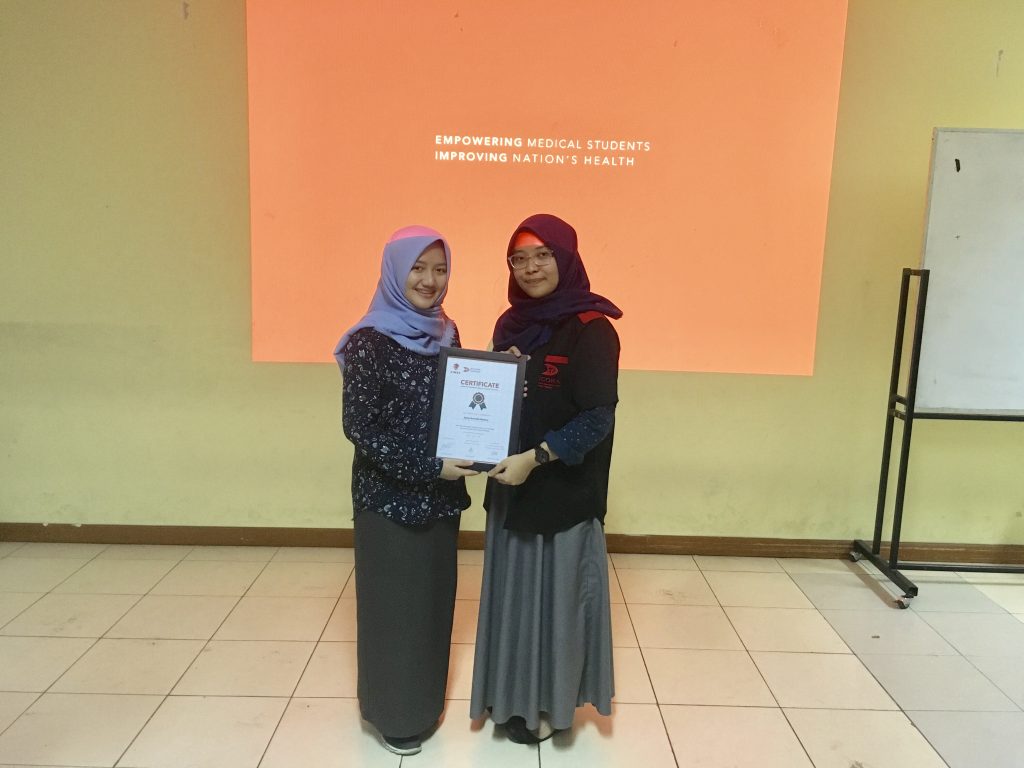
The activity started with a Maternal Health training led by Ajeng Nurmalia as PETRA CIMSA FK UIN SH. The material includes Maternal Mortality Rate (AKI) in Indonesia which is still high and doesn’t reach the specified target, problems that often occur during pregnancy, Antenatal care (ANC) and how to practice ANC, Leopold Examination, good nutrition for pregnancy, and etc. Participants who are first-year students have not yet got the module for Reproduction, they were very enthusiastic in participating on this training. The enthusiasm can also be seen from the question and answer session by the participants, and also from the increase in the post test. Pretest values obtained an average of 27, while the post-test obtained an average value of 98. Provision of material about maternal health is based on the holding of Community Development MEGA (Maintaining a Healthy Pregnancy) which took place at the Makmur Jaya Clinic, Ciputat. MEGA will be held from October to January. Every MEGA intervention will have an Antenatal Care (ANC), therefore there will be a training for SCORA members of 2018 on Maternal Health.
After training on maternal health, the next material given is Basic Peer Education by Chindy Maylawati as PETRA CIMSA FK UIN SH. The material presented was about peer education, peer education theory, types of peer educators, the advantages of peer education, and how to be a good peer educator. In this training, participants were no less enthusiastic than the previous material. However, because participants already have the knowledge on peer educators, an average pre test score of 56 and an average post test of 96 is obtained.
The purpose of this training on basic peer education is because as a SCORA member they must also be able to educate their peers about reproductive health, and aswell as other SCORA relation topic. In a survey conducted by the Center for Research and Development of Family Planning and Family Welfare by the National Population and Family Planning Agency stated that the level of reproductive knowledge is one of the factors that can influence sexual behavior of premarital adolescents. The 2012 IDHS results in adolescent knowledge
about reproductive health are inadequate, which can be seen with only 35.3% of adolescent girls and 31.2% of adolescents aged 15-19 years know that women can get pregnant with one sexual intercourse. Whereas for comprehensive knowledge about HIV-AIDS only 9.9% of girls and 10.6% of boys are known.
In general, more boys said they had had premarital sex than women. In the percentage of premarital sex in adolescents in 2011 increased from 2007. That could be a risk of teenage pregnancy and transmission of sexually transmitted diseases, for example HIV-AIDS.
With this activity, we hope that SCORA CIMSA FK UIN SH members
An article by SCORA CIMSA FK UIN SH.
